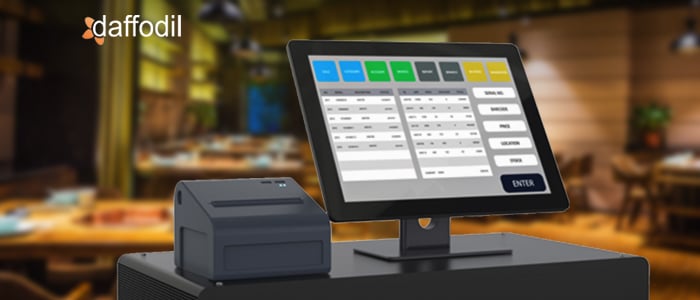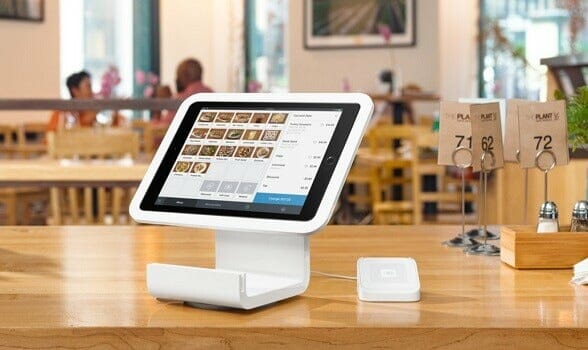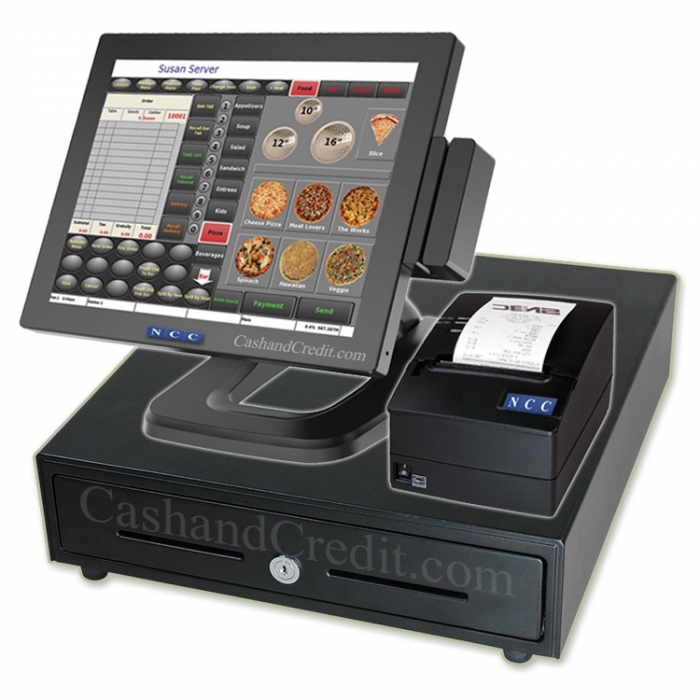Cloud-based vs. on-premise Restaurant POS Software deployment options explained
Wiki Article
Recognizing the Value of POS Software in Modern Retail Workflow
In today's retail landscape, the role of POS software has come to be progressively considerable. These systems have transformed from standard sales register to multifaceted devices that improve numerous facets of procedures. They not only simplify transactions however also offer insights that can form organization techniques. Comprehending exactly how these systems impact client experience and stock monitoring is crucial for any type of retailer seeking to stay affordable. The effects of these improvements necessitate further exploration.The Evolution of POS Software: From Purchase Processing to Comprehensive Solutions

Enhancing Consumer Experience Via Advanced POS Features

Simplifying Inventory Administration With Integrated POS Systems
Integrated POS systems play a crucial function in streamlining supply administration by automating procedures that traditionally called for considerable manual initiative. These systems make it possible for sellers to track supply degrees in real time, getting rid of disparities that typically arise from manual stock counts. With attributes such as barcode scanning and automatic stock replenishment notifies, businesses can keep ideal stock degrees without overstocking or stockouts.Furthermore, incorporated POS systems assist in accurate projecting by examining historic sales data, permitting sellers to make enlightened acquiring decisions. This predictive capability helps businesses adapt to altering customer needs and seasonal trends more effectively.Additionally, the centralization of stock information throughout multiple sales networks boosts visibility, enabling merchants to manage their stock a lot more efficiently. Eventually, the assimilation of POS systems into inventory management streamlines operations, minimizes human error, and adds to boosted productivity.Real-Time Sales Tracking and Reporting for Informed Decision-Making

Accurate inventory management prepares for effective sales monitoring and reporting. Real-time sales tracking enables stores to keep an eye on sales performance as it takes place, offering immediate insights right into client investing in patterns and fads. This capacity allows services to react swiftly to fluctuations in demand, enhancing supply levels and lessening overstock or stockouts.Moreover, integrated POS systems assist in the generation of in-depth records, highlighting key metrics such as sales by group, amount of time, and specific items. Such coverage capabilities equip stores to make data-driven choices, recognizing successful techniques and areas requiring improvement.
The Function of POS Software in Consumer Relationship Management
POS software plays a necessary role in boosting client relationship monitoring by making it possible for sellers to apply personalized marketing methods. By analyzing customer information, services can customize promos and communications to satisfy specific preferences. In addition, these systems facilitate the advancement of improved commitment programs that encourage repeat service and strengthen consumer interaction.Personalized Advertising And Marketing Methods
As retailers significantly look for to enhance consumer loyalty and interaction, personalized advertising techniques have actually become an important component of effective consumer connection monitoring. POS software plays an important function in this process by gathering and evaluating client information, making it possible for stores to tailor advertising efforts to specific choices and buying actions. By leveraging understandings from purchase histories, retailers can develop targeted promotions and customized communications that resonate with consumers, promoting a deeper connection. In addition, the assimilation of POS software with client connection monitoring systems enables seamless tracking of client interactions, guaranteeing that advertising methods remain appropriate and prompt (Restaurant POS Software). This data-driven method not just enhances client complete satisfaction but likewise drives sales and urges repeat company, strengthening the retailer's market settingEnhanced Loyalty Programs
Retailers are increasingly acknowledging the relevance of loyalty programs in cultivating long-term client partnerships and enhancing general involvement. POS software plays a necessary role in the advancement and monitoring of these programs, permitting sellers to track consumer acquisitions, choices, and actions successfully. By leveraging information analytics, organizations can produce individualized incentives and rewards that reverberate with individual clients, thus enhancing involvement in loyalty programs. Additionally, POS systems make it possible for smooth assimilation with mobile applications and digital systems, assisting in very easy accessibility to incentives and promos. This not only enhances client satisfaction however additionally drives repeat organization. Ultimately, POS software empowers stores to grow deeper links with their clientele, transforming occasional consumers into loyal clients through targeted and significant engagement methods.Incorporating POS Systems With Shopping Platforms for Omnichannel Success
To attain true omnichannel success, seamless assimilation between point-of-sale (POS) systems and shopping platforms is crucial. This integration permits merchants to merge their stock management, ensuring that item accessibility is precisely mirrored throughout both online and physical stores. Customers profit from a cohesive shopping experience, where they can conveniently change between channels without running into discrepancies.Furthermore, incorporated systems facilitate real-time data sharing, making it possible for organizations to evaluate customer habits and preferences better. This data-driven strategy allows merchants to tailor advertising and marketing strategies and optimize supply degrees, inevitably improving customer complete satisfaction and driving sales.Additionally, the capability to process deals across platforms simplifies procedures, minimizing the risk of errors and boosting total effectiveness. As retailers significantly embrace omnichannel techniques, the combination of POS systems with shopping platforms stays a crucial element in attaining sustainable development and preserving affordable advantage in the vibrant retail landscape.Future Trends in POS Technology and Their Influence On Retail Operations
As retail operations progress, future fads in POS technology are set to improve the landscape significantly. The rise of cloud-based solutions, technologies in mobile POS systems, and the benefits of AI combination are amongst the essential advancements expected to this improve efficiency and client experience. These innovations assure to simplify processes and foster a much more vibrant retail setting.Cloud-Based Solutions Surge
With the increasing reliance on technology, cloud-based POS services are transforming retail operations by providing improved versatility and scalability. These systems make it possible for retailers to access real-time information from anywhere, promoting better decision-making and consumer service. By leveraging cloud facilities, businesses can minimize ahead of time prices connected with software and hardware installments while making certain smooth updates and upkeep. Furthermore, cloud-based options sustain multi-location administration, permitting merchants to integrate stock and sales throughout different electrical outlets easily. This flexibility is important in today's hectic market, where customer choices shift quickly. As more sellers embrace these services, they can expect improved operational effectiveness and a much more receptive technique to market needs, ultimately enhancing customer fulfillment and loyalty.Mobile POS Innovations
The advancement of retail innovation remains to shape procedures, specifically with the surge of mobile POS advancements. These systems allow stores to refine transactions anywhere within the shop, improving customer engagement and improving check out procedures. Mobile POS services improve inventory administration by allowing immediate access to stock levels, assisting personnel help clients extra successfully. Furthermore, they promote customized buying experiences through incorporated consumer data and commitment programs. As mobile phones end up being increasingly innovative, retailers are embracing features such as contactless repayments and digital invoices, additionally enhancing the buying trip. The shift towards mobile POS not just increases functional effectiveness but additionally lines up with the growing customer preference for benefit, ensuring that merchants continue to be competitive in a rapidly advancing market.AI Combination Advantages
AI integration stands for a transformative leap in POS innovation, using stores a myriad of advantages that improve functional effectiveness and consumer experience. By leveraging machine knowing formulas, stores can analyze purchasing patterns and maximize stock management, reducing waste and stockouts. In addition, AI-powered analytics provide tailored advertising recommendations, making it possible for targeted promotions that increase customer engagement and commitment. In addition, chatbots and virtual aides enhance customer support, permitting quicker resolution of questions and improving the general buying experience. Anticipating analytics can additionally anticipate need fads, enabling smarter staffing and source allowance. Eventually, the assimilation of AI in POS systems empowers sellers to make data-driven decisions, cultivating anonymous an one-upmanship in an ever-evolving retail landscape.Regularly Asked Concerns
What Are the Prices Associated With Executing POS Software?
The costs related to applying POS software can consist of software licensing charges, equipment expenditures, setup fees, training costs, and ongoing upkeep. Each factor contributes to the general investment needed for an effective implementation.
Just How Can Little Retailers Gain From POS Systems?
Small stores can take advantage of POS systems via improved transaction performance, streamlined supply management, and boosted customer understandings. These systems allow far better decision-making, eventually leading to raised sales and client complete satisfaction in open markets.
What Hardware Is Needed for a POS System?
A common POS system calls for crucial equipment elements, including a touchscreen display, money drawer, barcode scanner, invoice printer, and settlement terminal. These components collaborate to help with efficient purchase processing and inventory management for sellers.
Can POS Software Be Custom-made for Details Retail Demands?
POS software can undoubtedly be customized to satisfy certain retail needs. Restaurant POS Software. This flexibility enables businesses to tailor functions, interfaces, and reporting devices, improving operational efficiency and providing a more personalized experience for both team and customersHow Protected Is Customer Data in POS Systems?
The safety and security of customer data in POS systems differs widely. Many systems apply file encryption, protected accessibility controls, and routine updates, but susceptabilities can still exist, necessitating recurring caution and proactive actions Find Out More from merchants to protect delicate information.Report this wiki page